Cogeneration
Is America Ready to Unleash a Multigenerational Force for Good?
We commissioned NORC at the University of Chicago to find out what Americans think about cogeneration — a strategy to bring older and younger people together to solve problems and bridge divides. NORC used its AmeriSpeak panel to survey 1,549 respondents, aged 18 to 94, online and by phone, in March 2022.
The findings show deep interest in cogeneration. They also reveal obstacles to acting on this interest, the surprising issues each generation selects as top priorities for cogenerational action, and which adults are most eager to get started.
Generations cited include these ages: Gen Z 18 to 25, Millennial 26 to 41, Gen X 42 to 57, Boomer 58 to 76, and Silent Generation 77 and older.
What you need to know
Read the foreword, key findings and conclusion below. Read the complete report here.
FOREWORD
We’re living in the most age-diverse society in human history. Will we make the most of it?
By Marc Freedman and Eunice Lin Nichols, Co-CEOs of CoGenerate
There are almost equal numbers of people alive today at every age, from birth to age 70 and beyond. With more people living longer, five-generation workplaces and three-generation households are surging. The opportunity to tap the unique and complementary talents of people of all ages and build a multigenerational force for good is here.
But are we ready? Will we squander the moment — even worse, allow it to sow more societal divisions? Or will we make the most of it?
We commissioned this study to find out what Americans think about cogeneration — a strategy to bring older and younger people together to solve problems and bridge divides. We got a dose of optimism and clarity in return.
To start, the findings paint a picture of pent-up demand. This is a solution wanting to happen. A sizable segment of the younger and older populations is hungry for opportunities not only for intergenerational connection, but cogenerational action — the chance to join forces in co-creating a better future.
Just as striking is where the strongest of that strong interest resides: in young people and people of color across the age spectrum. It’s no wonder that so many young people, growing up in diverse and multigenerational environments, would come so naturally to this direction.
You can almost hear the next generation calling their elders to action, delivering the message that we can’t do this without you.
The survey reveals a commonsensical fit in the motivations behind this interest. Older people want to share what they’ve learned from life, and younger people are eager to incorporate their insights. There’s a fundamental humility to these impulses, the recognition that bringing about significant change often takes years, even generations, and that no one group can accomplish this work alone.
That said, different generations articulate different priorities. Older people’s top priority for cogenerational work? The environment, a finding that underscores the deep interest older generations have in the world they will leave behind. For young people, mental health tops the list. Given the pandemic’s toll of loneliness and purposelessness on elders, it’s not hard to imagine a coalition of olders and youngers on mental health. A cross-generational alliance on the environment holds great promise, as well.
Younger and older people make plain the challenges of these prospects. It’s hard for many people to know how to get started working across generational lines when daily life is so segregated by age. We need more formal opportunities to make coming together in common purpose easier.
For all these cautions, the overarching message from this study is clear: America’s growing age diversity represents an extraordinary opportunity to come together in joy, understanding and action. Let’s seize it.
Key Findings
Finding 1
Working across generations can help America better solve its problems.

Working across generations can reduce divisions in our society.

Finding 2
While interest is widespread, young people, and Black and Hispanic people of all ages, are especially keen to work across generations.
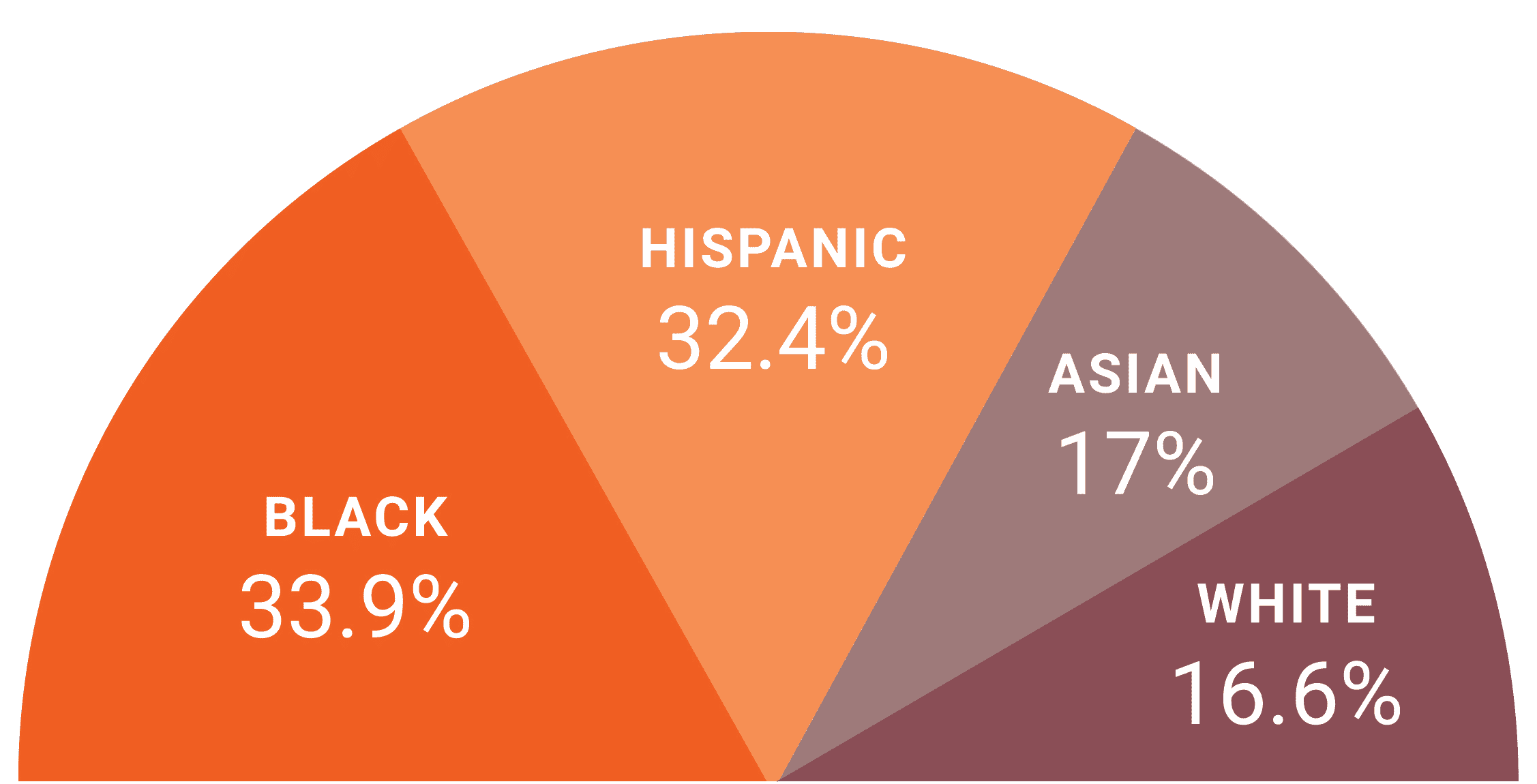
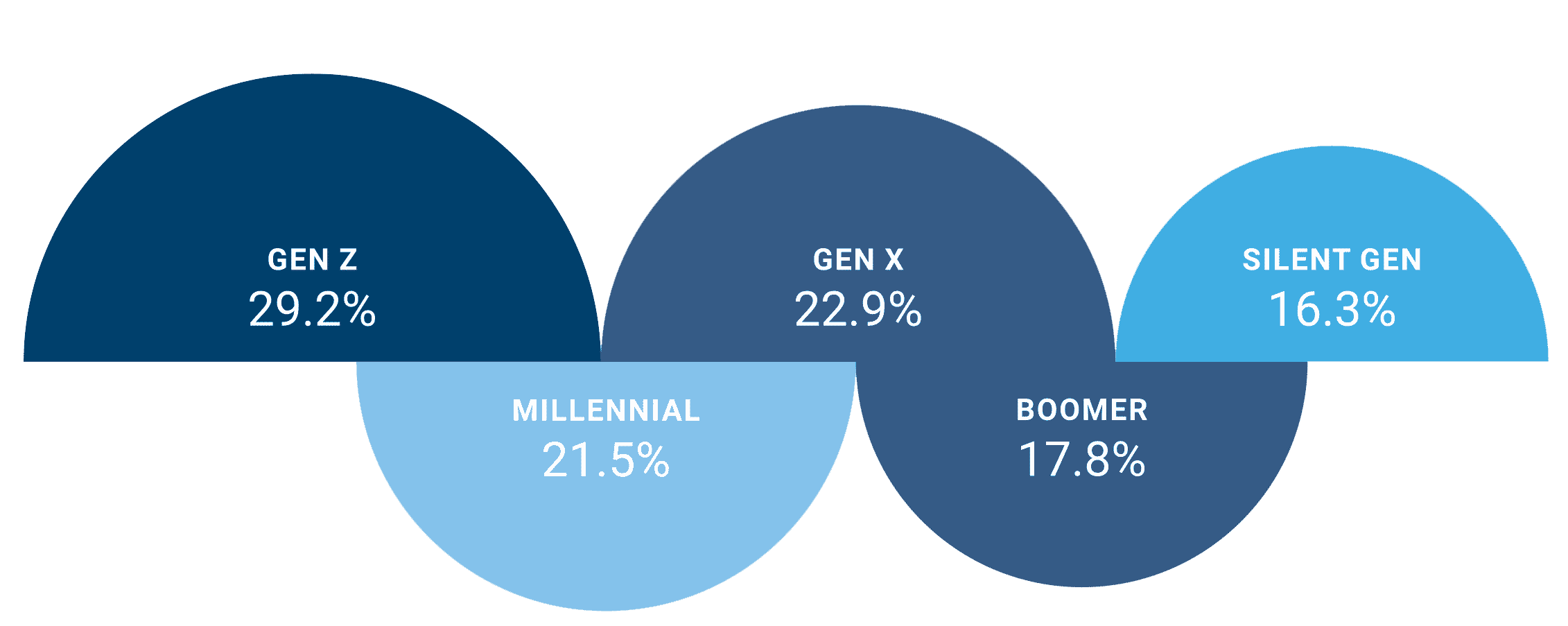
Percentages “much more likely” to step up if opportunities are cogenerational, by race and age
Finding 3
The fit is a powerful one: Young people want to learn from older ones; older people want to share what they know. And vice versa.
Top reasons respondents found cogeneration positive
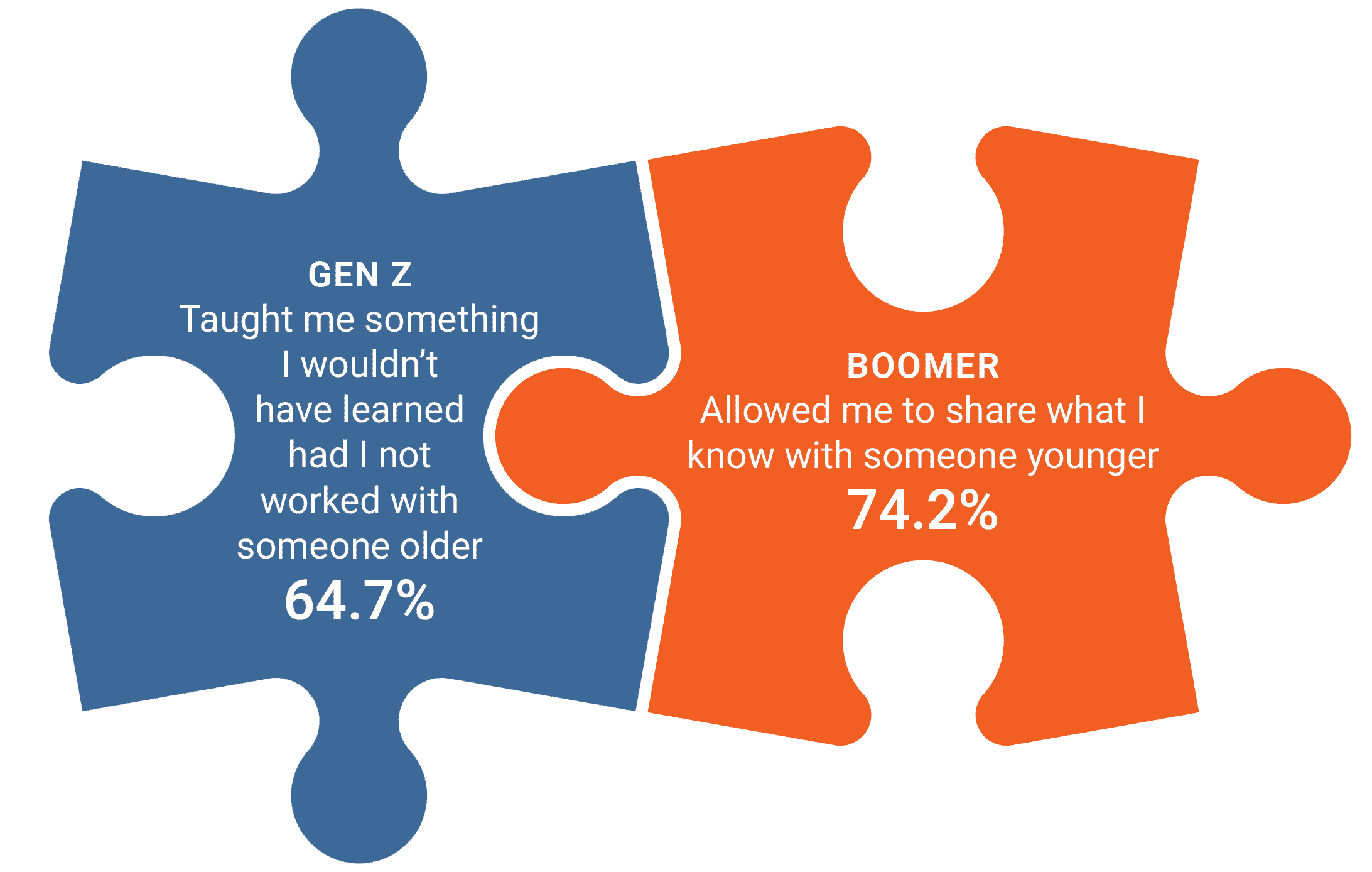
Finding 4
Older and younger people want to work together on some of the same issues—but there are striking differences by age and race.
Top issues to work on together
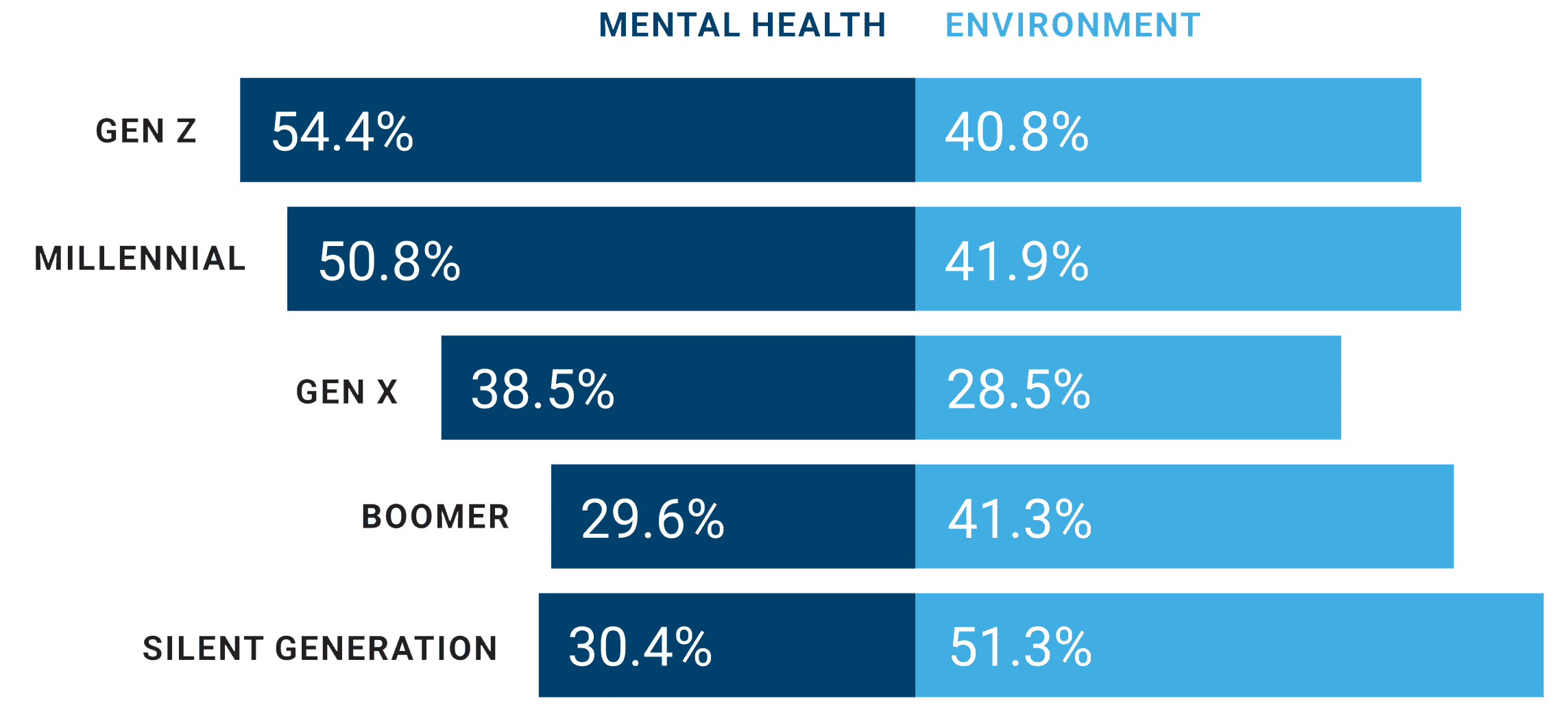
Finding 5
Despite strong interest in working across generations, fully half of respondents cited a range of obstacles preventing them from acting on it.
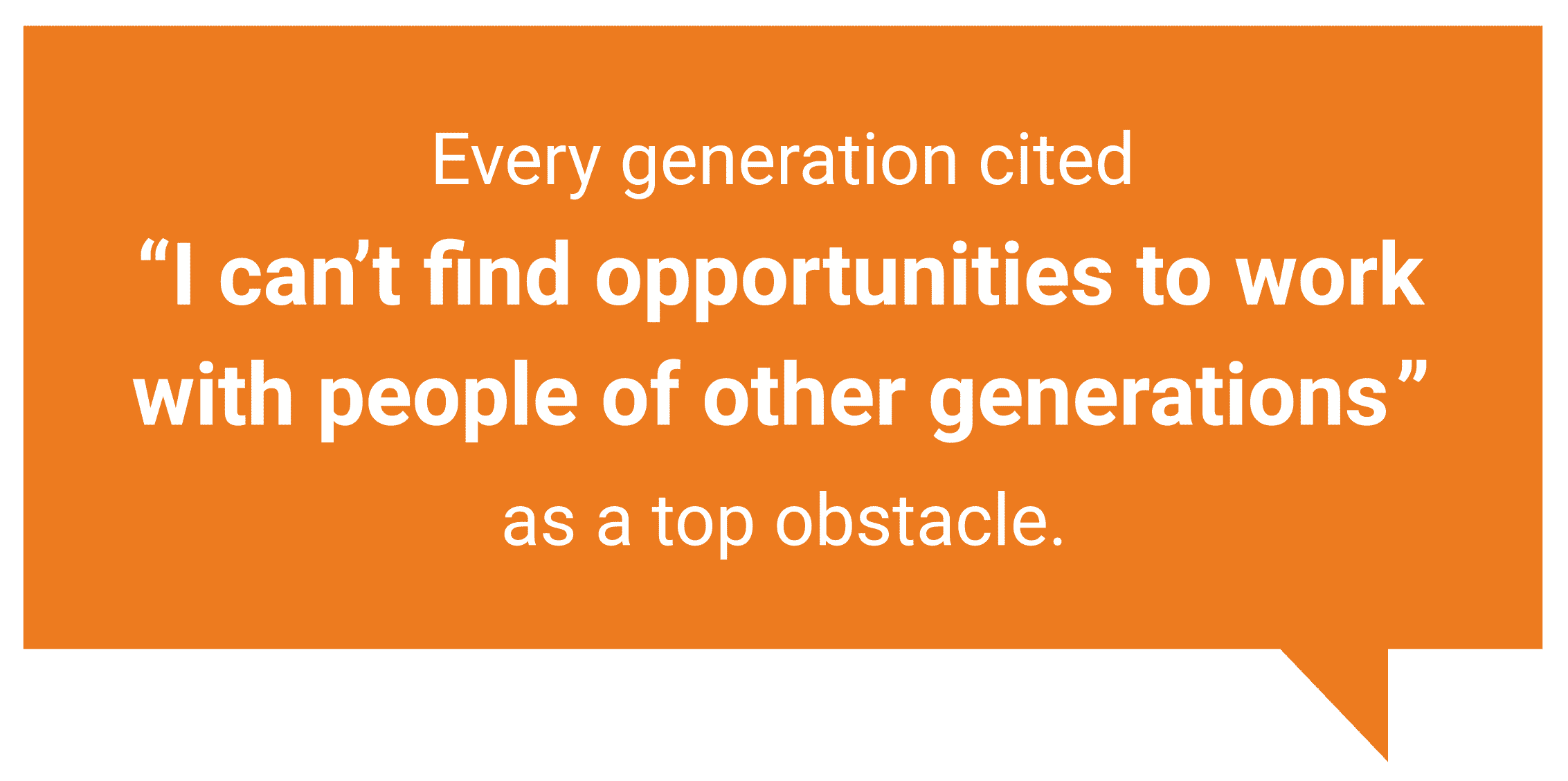
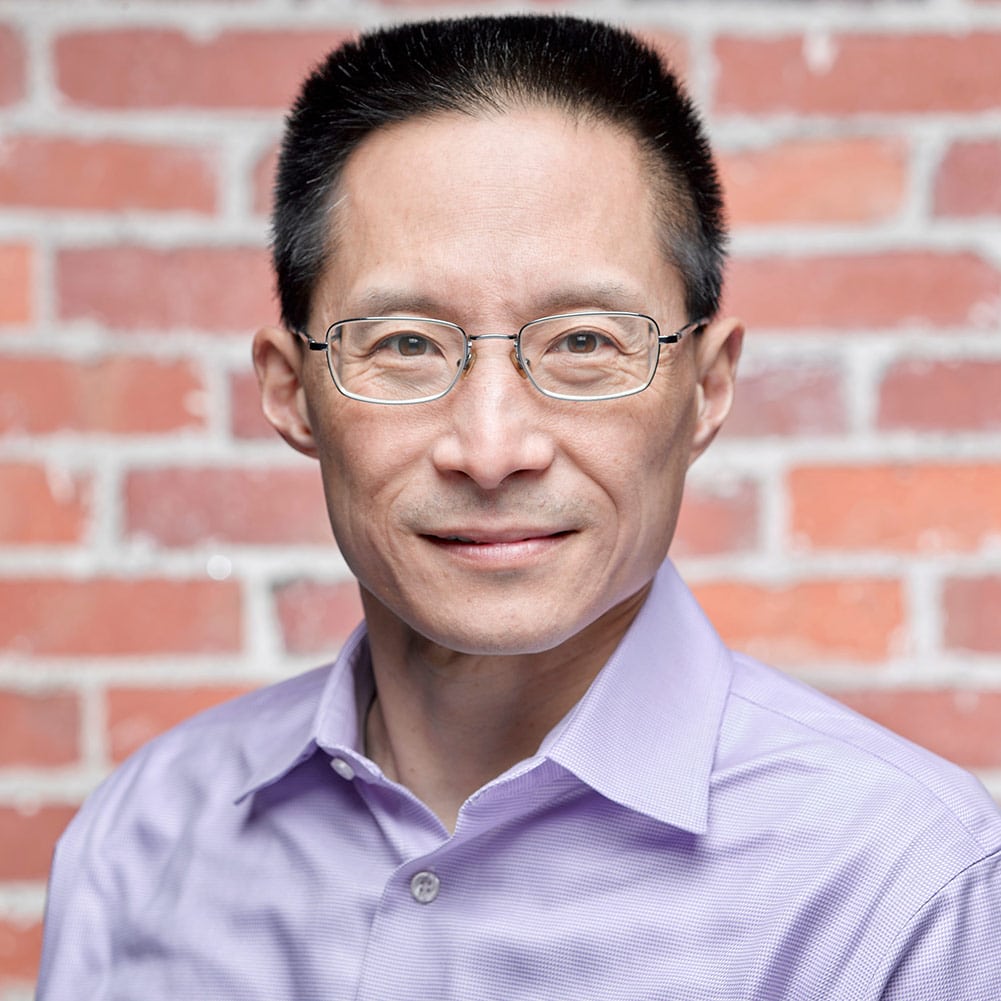
“We’ve activated a lot of young catalysts — people who are in high school right now. Part of our work is to teach them about power but, honestly, maybe the larger part of our work is to learn from them as they practice power. And they’re coming up with solutions and ways to organize and invite people in that are really interesting. I feel like we’re in a time that’s truly generative.”
ERIC LIU
CEO of Citizen University
Conclusion: Seizing the Moment
We’re living in the most age-diverse society in human history. Will we make the most of it?
It’s too easy to see the divides in our nation — across age, race, culture, identity, income, politics. It’s harder to see areas of agreement. This research reveals many.
We found powerful and widespread enthusiasm for cogeneration. People believe that working across generations will create a stronger nation, less divided and better able to solve its problems. They want to teach and learn from one another.
And yet, there are notable, and in some cases surprising, differences in perspective by generation and race. These differences shed light on critical issues — mental health, climate change, education — and on motivations and priorities. They have implications for all who advocate for change.
There are roadblocks, too.
People cited a range of obstacles that must be addressed if we are to unleash and scale a multigenerational force for good. End age segregation that keeps older and younger people apart and stereotypes that underestimate the old and the young. Create more opportunities to work across generations for social change and easier ways to find them. Recognize that opportunities to work together across age divides can be an enticement to serve, a selling point for any cause.
This survey uncovers the potential for cogeneration, now a largely untapped strategy for social impact and cohesion. Realizing that potential will help create an enormous multigenerational and, given the increasing diversity of our youngest generations, multicultural force for good.
It would be hard to find a more welcome message in these times.
Want to explore the survey data yourself?
Check out this peer-reviewed article in Data in Brief, which links to the entire dataset.

